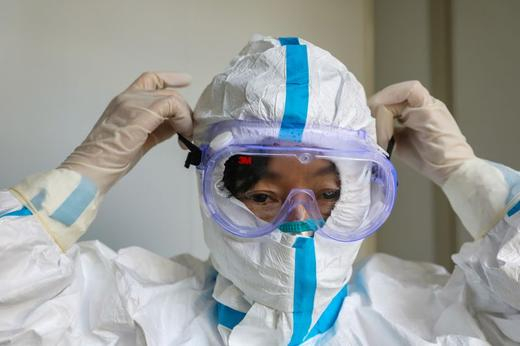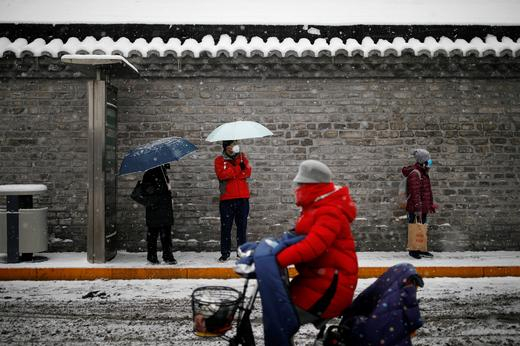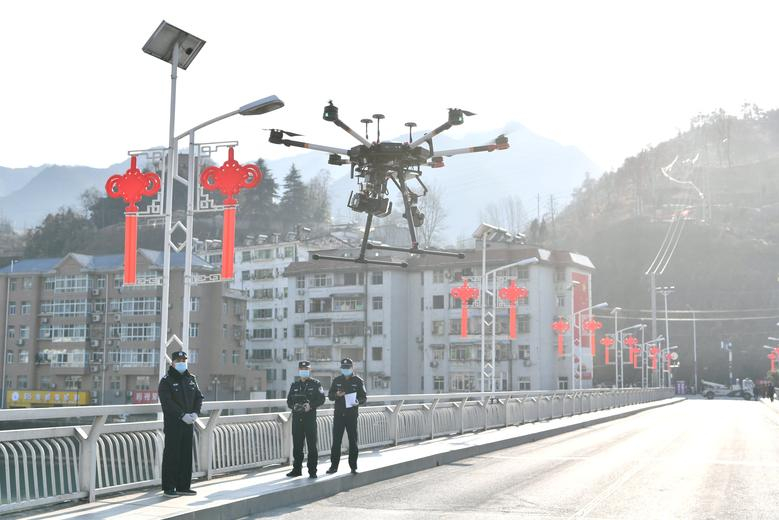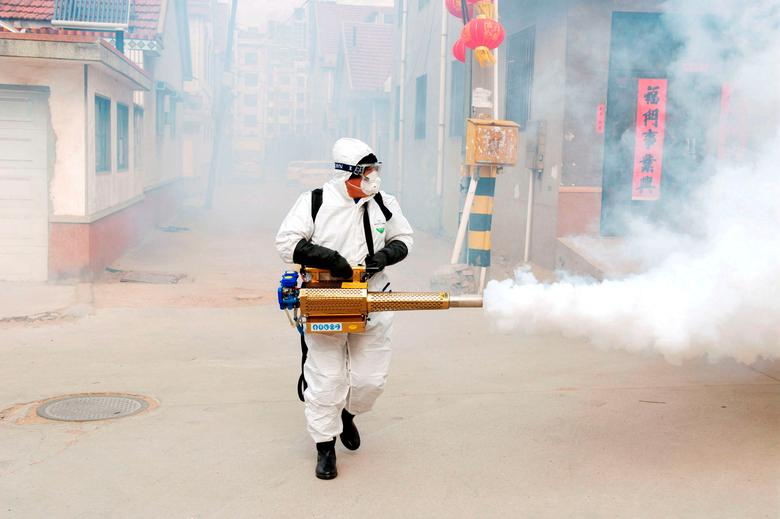Frequently checking body temperatures, feeling ashamed and guilty for being infected by the novel coronavirus, many people across China, especially residents in Wuhan are experiencing fear, panic, loneliness and stigma amid the coronavirus outbreak.
Jian Lili is among those who first spotted the worrying trend of psychological distress brought about by the epidemic. On January 22, one day before the city of Wuhan was quarantined, Jiandan Xinli, an online platform for psychological consultation, co-founded by Jian, published an article "How to protect yourself and your families under the pneumonia panic."
"At that moment, we had the burning desire to offer some assistance to residents from Hubei Province who became the target of the ire under widespread panic," Jian told CGTN. At the time, there were countless media reports of travelers from Hubei shunned by hotels across the country and their personal information was shared widely on the internet.
In three days, Jian, in consultation with her colleagues at Jiandan Xinli, decided to start a hotline for those in mental health crisis amid the coronavirus outbreak, with priority given to people at the epicenter in Hubei Province. A call for volunteer counselors was published and in 24 hours, they received more than 1,400 applications, among which 300 were selected to be the first batch of counselors.

A doctor puts on protective goggles before entering the isolation ward at a hospital, February 5, 2020. /Reuters Photo
A doctor puts on protective goggles before entering the isolation ward at a hospital, February 5, 2020. /Reuters Photo
The hotline is available every day from 6 p.m. to 12 p.m. Every night, 100 counselors are on the receiving end of the hotline, waiting to offer advice on emotion and stress management.
Some doctors rang in and throughout the call, could barely say a word, said Dr. Lin Chaihua, who manages a similar hotline initiated by the Faculty of Psychology of Beijing Normal University (BNU). "You can feel that the doctors are really really exhausted. They need help, but many of them did not even have any strength left to ask for it."
"Sometimes the only thing we can do is listen and give them some comfort and encouragement," she added.
As the media director of the epidemic prevention program at the Faculty of Psychology in BNU, Dr. Lin and her team started to offer hotline and online consultation service on January 27 for citizens going through psychological distress due to coronavirus outbreak. And they've served over 2, 000 people as of Friday with about 300 professional counselors.

People wearing masks wait amid snow at a bus stop as the country is hit by an outbreak of the novel coronavirus, February 6, 2020. /Reuters Photo
People wearing masks wait amid snow at a bus stop as the country is hit by an outbreak of the novel coronavirus, February 6, 2020. /Reuters Photo
According to Dr. Lin, among the people who have made the call, 50 percent are average citizens who were not infected but are going through health anxiety with some even showing symptoms of body pain, vomiting, palpitation, insomnia, and loss of appetite. Twenty percent are people being quarantined and the rest are doctors, patients and their family members.
Xiao Yan is among those quarantined in Wuhan. She said she has resorted to self-quarantine at home and only went out twice in the past two weeks. Though she has stayed calm ever since the city was quarantined, her mom had frequent mood swings after getting conflicting information online about the coronavirus. Upset about the current situation, her mom sometimes could not control her anger and lashed it out at the family.
"Negative emotions at such a time are very normal. All kinds of emotions are meaningful, because they are telling us some important information," Dr.Lin from the Faculty of Psychology in BNU said.
For psychological counselors, it is important to help people recognize their emotions, e.g. anger, panic, fear, so that they can have a sense of control, Jian, founder of Jiandan Xinli said. People at the epicenter of the crisis tend to exaggerate the degree of threat to which they are exposed to. Counselors can thus help them assess the threat level and identify sources of stress.

Police officers operate a drone to spread information about the prevention and control of coronavirus, in Baokang county, Xiangyang, Hubei province, China, February 4, 2020. /Reuters Photo
Police officers operate a drone to spread information about the prevention and control of coronavirus, in Baokang county, Xiangyang, Hubei province, China, February 4, 2020. /Reuters Photo
Compared to the SARS outbreak in 2002, much more information about the coronavirus is available on Chinese social media. But a deluge of rumors and misinformation also exists. The source of the virus had been traced to bats, to snakes, and even to a military lab in Wuhan. People have been advised to drink salt water to fend off coronavirus, according to some bloggers, while have said chewing garlic helps.
The rapid spread of information makes people more aware of the coronavirus situation, but it makes people anxious and fearful, according to Know Yourself, a platform for providing psychological services. The anxiety may prompt some to rush to the hospital in seek of medical help, an act that would waste valuable medical resources and put them at high risk of infection.
Dr. Lin from the School of Psychology in BNU suggested reducing intake of negative news, doing indoor sports, making plans for work and life, and learning new skills to relieve their dread and distress. And when needed, asking for professional support.
However, healers also need time to heal. Depression may plague people who go for counseling, as well as the counselors themselves. Jiandan Xinli advised their counselors not to take over five calls a day and take calls at least every other day to avoid burnout and depression. If they feel emotionally unstable, counselors can choose to take a break.

A worker in protective suit disinfects Dongxinzhuang Village in Qingdao, Shandong Province, China, January 29, 2020. /Reuters Photo
A worker in protective suit disinfects Dongxinzhuang Village in Qingdao, Shandong Province, China, January 29, 2020. /Reuters Photo
People can suffer from profound mental health issues that last long after the end of the epidemic, Jian said. Especially for those who went through traumatizing experience, who do not have a stable social support structure, their long-term trauma may turn into psychological problems that impede their normal life, which is a sign that they should go for psychological therapy.
The National Health Commission said on February 3 that it has asked experts to draft guidelines on psychological intervention for various groups of people amid the coronavirus outbreak. Provinces, municipalities and autonomous regions are also advised to better coordinate governmental or non-governmental groups to offer counseling services.
Xiao Yan, who is now studying at Huazhong University of Science and Technology, said she is aware of the mental health hotline service offered by her school. Many of her schoolmates, though not having tried to reach out for help, have chosen to actively cut down the amount of time spent on consuming online information, in order to reduce their stress levels.
"I think the most important function of hotline, is that it provides a support mechanism to people," Jian from Jiandan Xinli concluded. Though many may never pick up the phone and access the hotline service, its existence provides reassurance to individuals in times of distress.